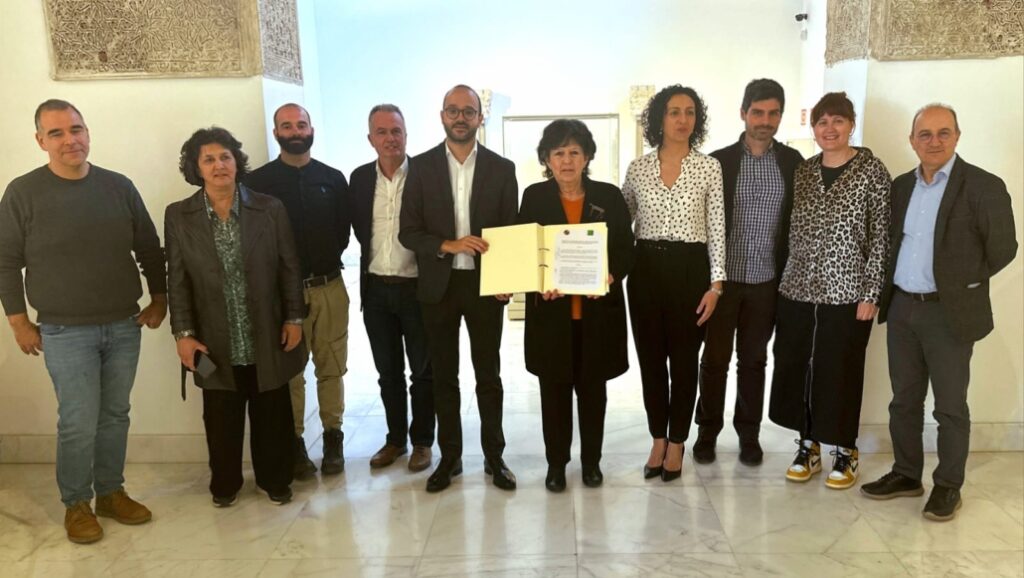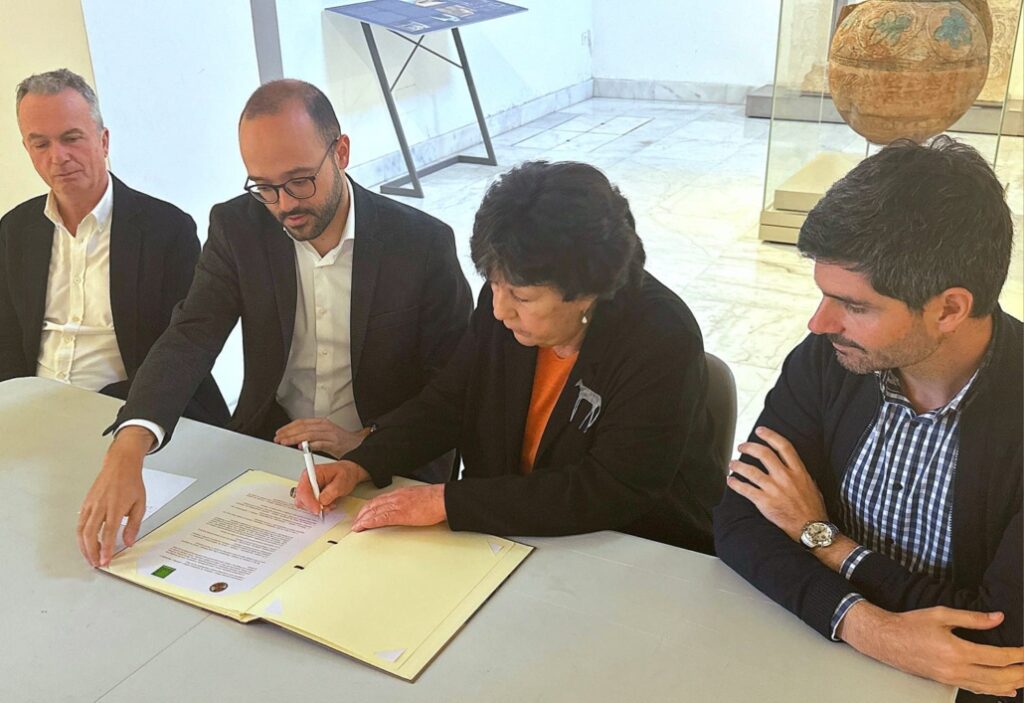Communications
FUNCI signs an agreement with the Provincial Council of Albacete
On 9 April, the Provincial Council of Albacete, through its Institute of Albacete Studies ‘Don Juan Manuel’ (IEA), and the Islamic Culture Foundation (FUNCI) sealed an important collaboration agreement aimed at promoting research, dissemination and conservation of Islamic heritage in the province of Albacete (belonging to the Spanish region of Castilla-La Mancha).
The signing ceremony of the agreement was organised in the Taller del Moro (Museum of Santa Cruz), in Toledo, and was signed by the provincial vice-president, Fran Valera, and the General Secretary of FUNCI, Encarna Gutiérrez. The mayoress of Higueruela, Isabel Martínez, was also there. Also present were Pedro Jiménez (School of Arab Studies-CSIC) and Sergio Isabel Ludeña (Scientific Coordinator of FUNCI), as well as other collaborators, including several members of the Toledo School of Translators, the Museum of Santa Cruz and the Museo de Santa Cruz, ¡Vivo! Association.

During the celebration, the interest in the Andalusian farmhouse of La Graja (Higueruela, Albacete) was highlighted. The site has yielded significant discoveries, the result of excavations carried out in recent years by a team made up of researchers from the Institute of Albacete Studies (IEA), the School of Arab Studies (CSIC) and the University of Alicante. Other findings include the first rural mosque in Castilla-La Mancha, a complete sheep specimen from the 11th century and evidence of dry farming in the area, an aspect still little studied by specialists in rural Andalusian culture. Thanks to this research, Albacete has positioned itself at the centre of academic dialogue and in the focus of scientific interest.
Thus, it should be noted that this collaboration transmits an important flow of knowledge and scientific rigour, and aims to reinforce the social aspect, as well as the dynamisation of the territory, which is the aim of the Provincial Council, the Institute and FUNCI itself.
Finally, both parties are committed to working together for the knowledge and preservation of a historical legacy that is crucial to revitalise the past and build a common future based on respect, coexistence and the enhancement of our cultural diversity.
This article is available in Español


